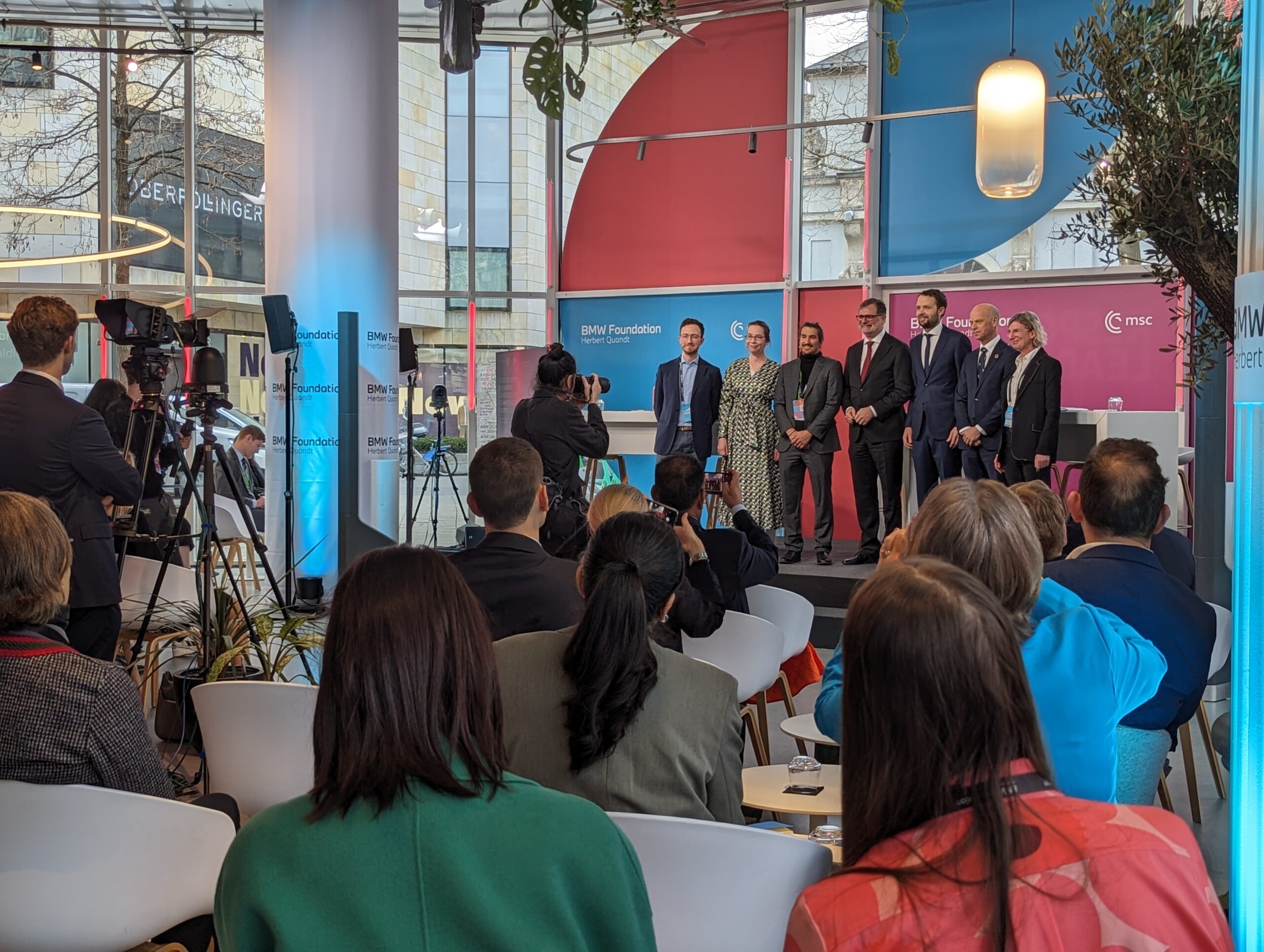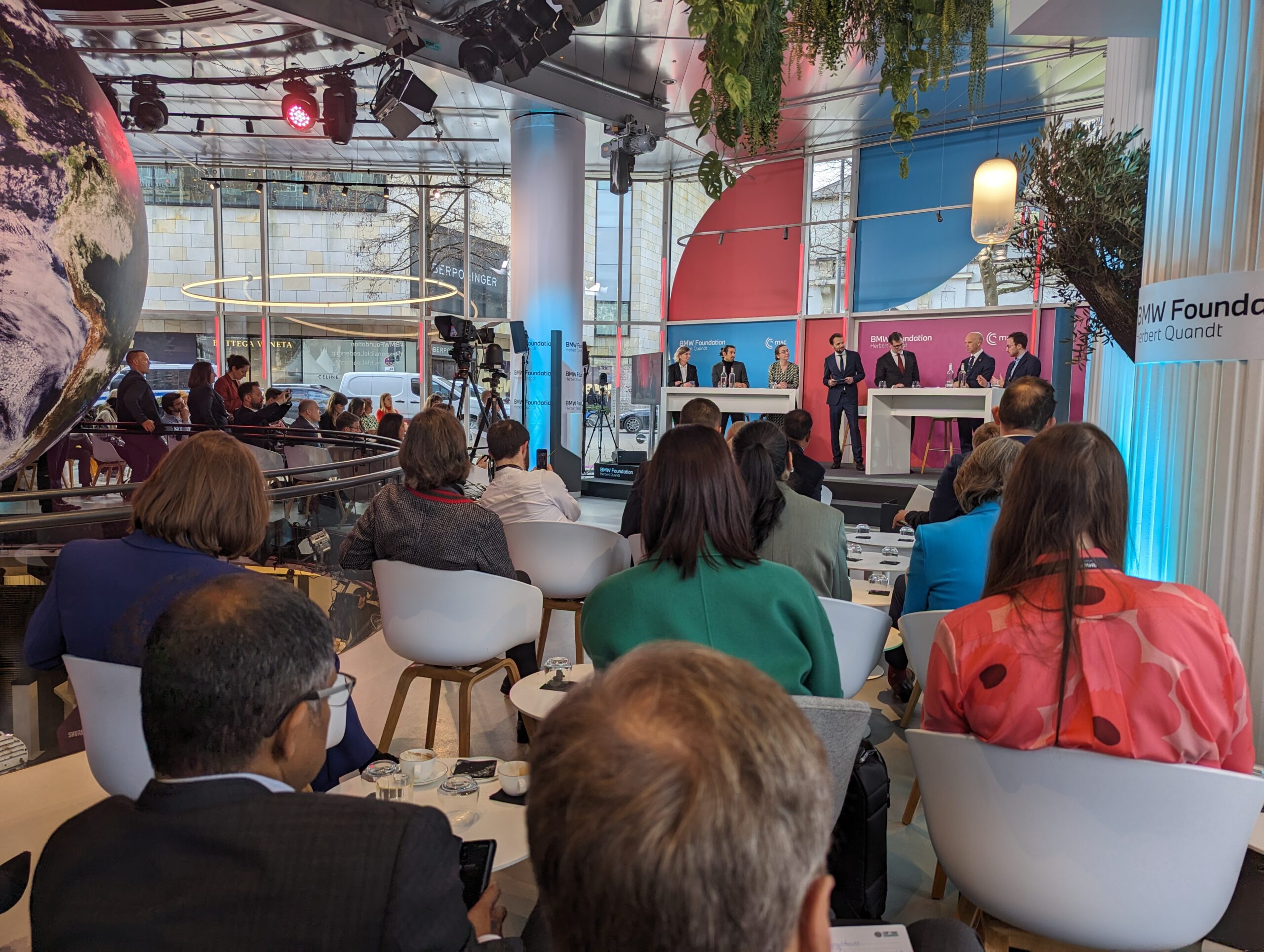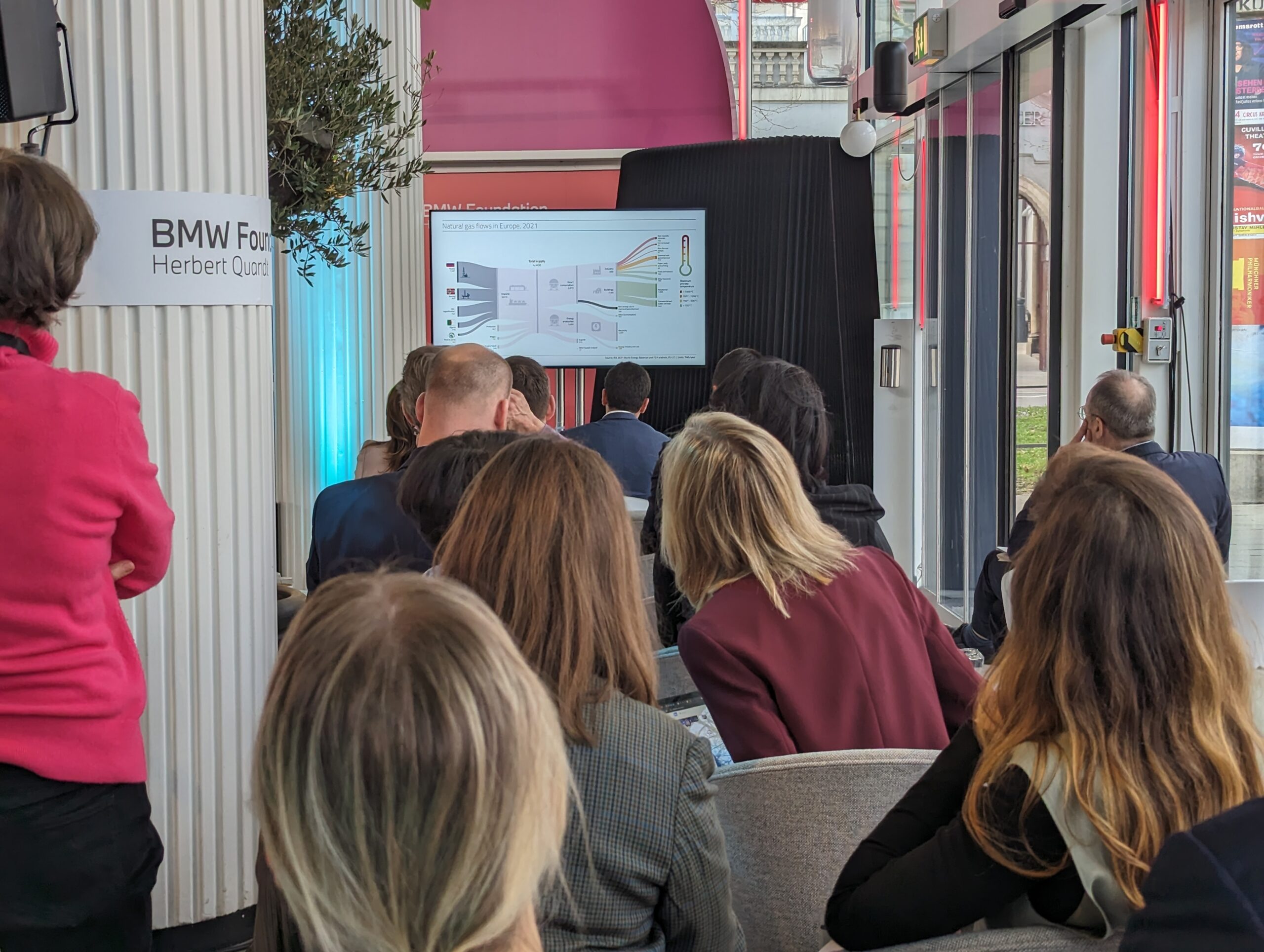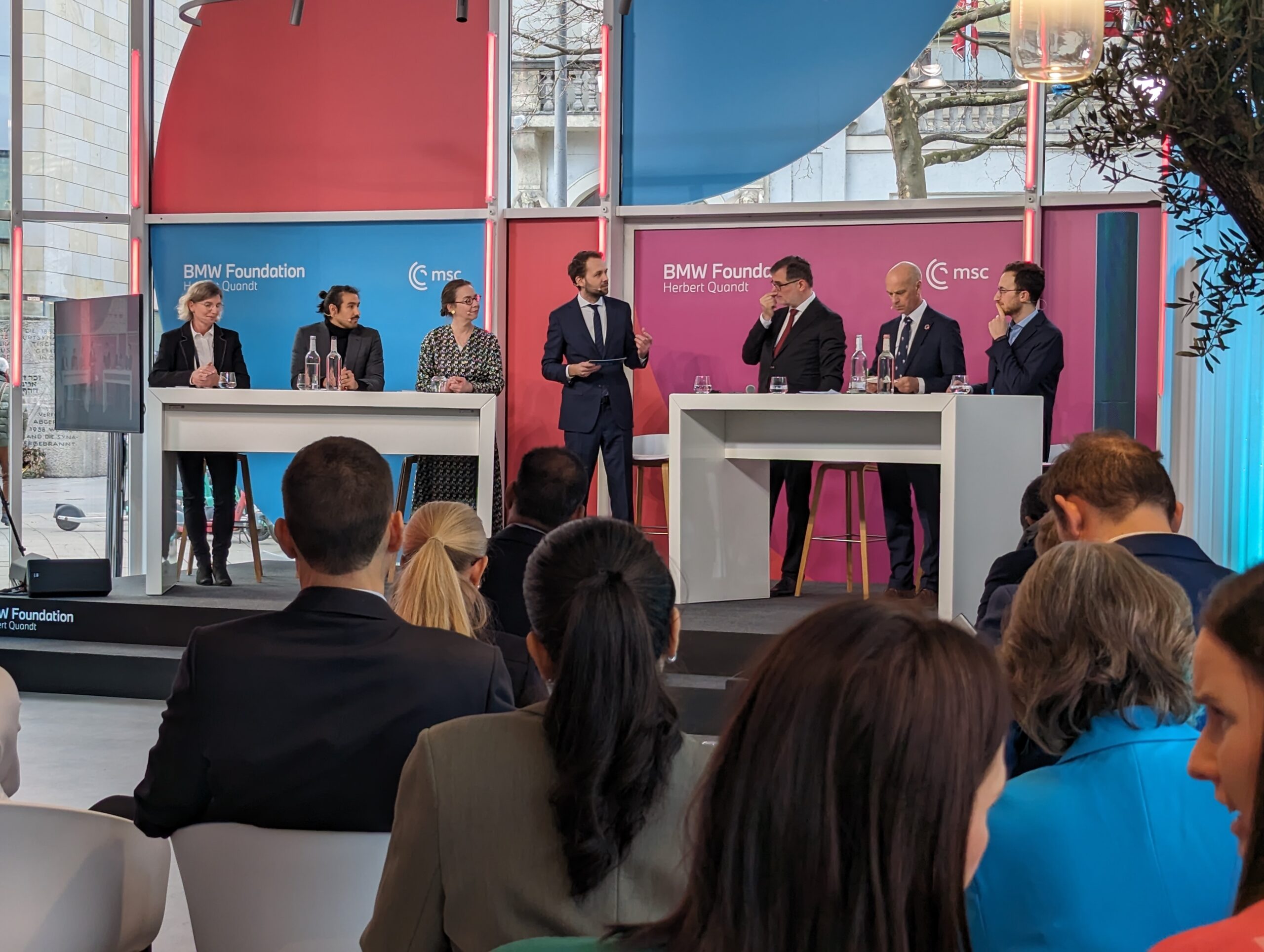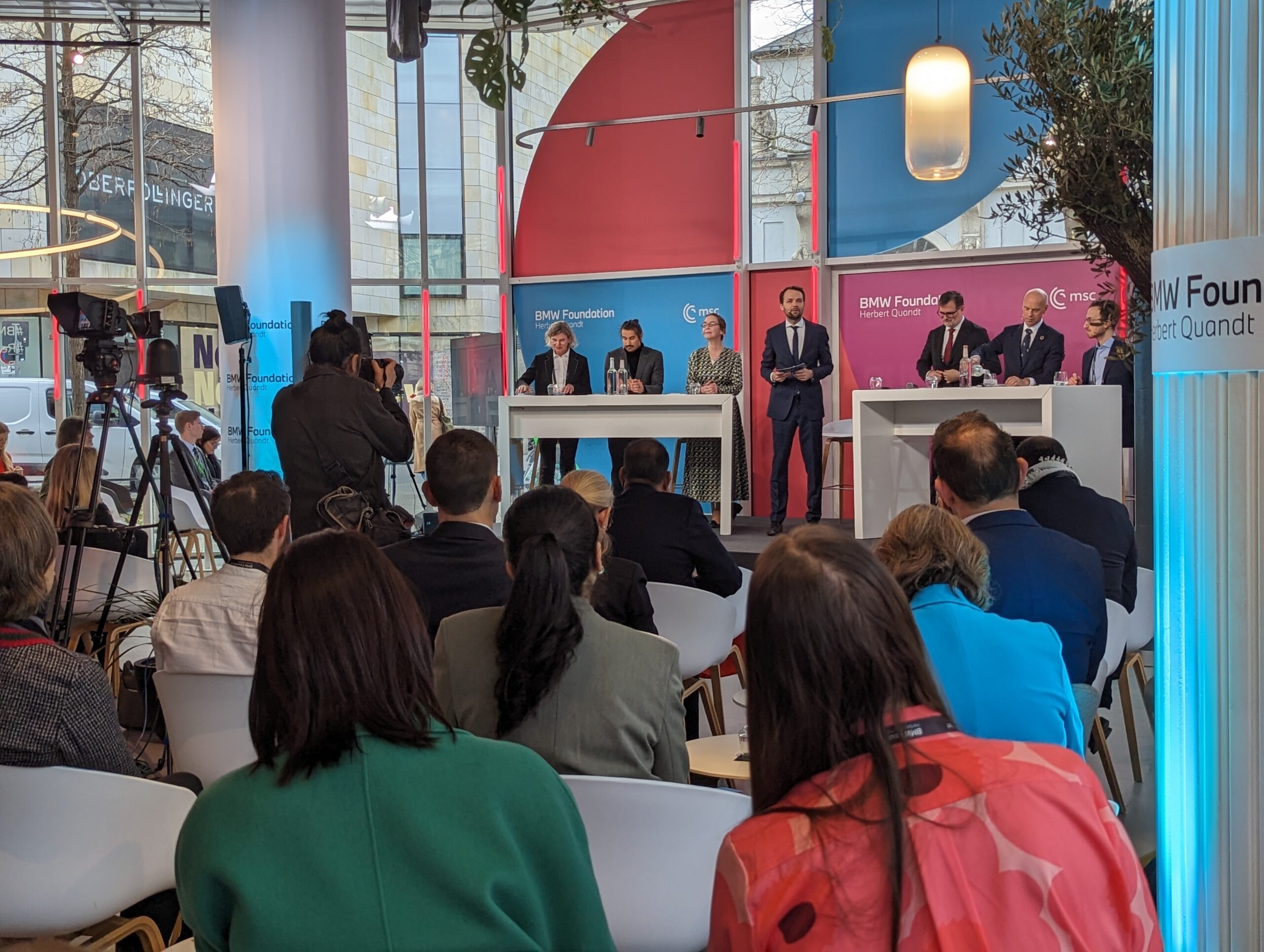Munich Security Conference 2024 Responsible Leaders Hub
Green Security: Empowering Climate Tech to Advance Energy ResilienceStorage (TES) technologies with Breakthrough Energy.
Future Cleantech Architects was invited by BMW Foundation Herbert Quandt, Energy Resilience Leadership Group, and UnternehmerTUM to provide intermediate results of our ongoing project on decarbonizing high-temperature heat. The presentation can be found in
this deck, key findings from the subsequent panel discussion have been summarized below.
Key findings and calls to action from the panel discussion
Following opening remarks by Head of the Federal Chancellery and Federal Minister for Special Tasks Wolfgang Schmidt, Republic of Germany, and our own presentation, panelists Hans Olav Ibrekk (Special Envoy for Climate and Security, Norwegian Ministry of Foreign Affairs), Victoria Ossadnik (E.ON), Philip Kessler (Turn2X), Francesco Sciortino (Proxima Fusion), and Susanne König (Kraftblock) debated which specific steps would be needed to develop and scale high-impact technological solutions faster.
In order to close the considerable investment gap to reach the targets set for innovative deep decarbonization technologies, it is imperative that we provide significantly larger resources. Commitments to climate technologies and innovation that have been made must be kept.
The Inflation Reduction Act (IRA) in the United States, the Net-Zero Industry Act (NZIA) in Europe, and similar programs in China provide important support in these regions. The developing world lacks such resources for cleantech development but must not be left behind. Best practices must be transfered comprehensively, and financial support expanded.
We need to become more ambitious and change the culture of accepting risks in developing technologies. This includes the establishment of public guarantees to bridge the uncertainty created by higher operating costs that do not foster an environment suitable for investment. Clear signals that clean technologies are welcome are crucial.
In adapting the grid and the policy framework to a changing energy landscape, countries like Germany need to be quicker. Permitting constraints must be assessed and bottlenecks resolved to expedite the deployment of clean technologies in order to avoid an exodus of innovators and lags in technology deployment.
The most promising and efficient solutions require significant investment in infrastructure development and R&D. R&D needs a different level of policy attention.
We must mind the security of energy infrastructure (both physically and virtually in cyberspace). Industries will require access to reliable and affordable clean electricity supply to adopt clean technologies. Key issues include the availability of clean electricity and grid
connections, as well as the intermittency of renewables.
